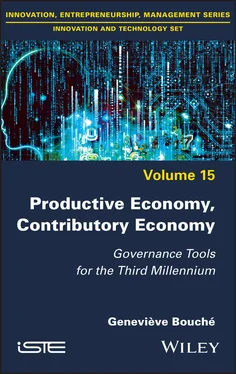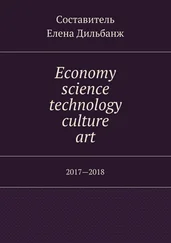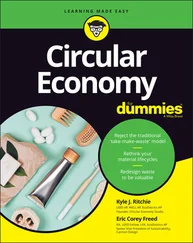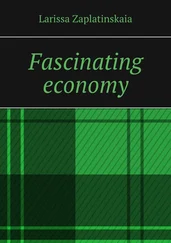“Technology” is becoming almost a science. Its purpose is to produce more and more with greater efficiency or to arouse more desire in customers… And finally it must produce more profitability! If progress seems limitless, then profitability also seems limitless, which is not true in the medium and long term: everything has a limit in our life system.
The heyday of the industrial age is clearly behind us in Europe, now in North America and soon in China. It is this “after” that we must concern ourselves with.
In the “capital/labor” equation that characterizes the corporate world, we have seen a gradual shift to the priority of capital as technological and organizational progress has allowed us to produce more and better with fewer resources. Capital owners have absorbed the growing profits without really sharing them with workers.
Finance is an instrument, not the center of our lives. This imbalance, which is matched by the scattering of poverty and the consequent concentration of wealth, has been made possible by the absence of profit thresholds. The minimum wage is hard to impose. Maximum profit is not even under discussion!
These famous tolerance thresholds are reminiscent of the planned economies that claimed to produce the right quantity. Without today’s digital technology, they have led to sinister dictatorships. These dictatorships were highly centralized and provided a sounding board for all the errors and shortcomings of their decisionmakers, who were boosted by the feeling of power. They did not demonstrate anything in terms of threshold. They only demonstrated the dangers of centralization.
The tribes that we call “primitive” knew very well how to deal with this notion of threshold. They took into account many local parameters when deciding to move to ensure the renewal of the areas they had exploited.
They did it with observation and transmission of knowledge from generation to generation. In the digital age, managing thresholds seems increasingly possible.
There is an ideological problem in not addressing this question of thresholds: if we become aware that we are an element in the system of life within Gaia, we must admit that we must respect thresholds of tolerance with minimums and maximums.
1.3.2. A specific model for each geopolitical zone
The 20th century ended with the establishment of “globalization”. This globalization was characterized by a hyperspecialization of geopolitical zones. It was established by the world’s high finance, which considered that all people had the same needs: food, housing, clothing and health care, but that certain areas should be more dedicated to design and others to production and the resulting social and environmental pollution. This model no longer makes sense with robotization, the dissemination of knowledge or the fight against pollution, etc.
Little by little, each geopolitical zone begins to produce its own airplanes and yogurts and grows its middle class.
Nevertheless, with the development of digital technology, we are witnessing the emergence of supranational structures that control the data of humanity and are preparing to control its monetary and ideological flows.
This is becoming a concern, and naturally we see the popular reaction mobilizing around the notion of sovereignty. Each geographical area has its own history, its own vision of the world and its own desire for autonomy.
In terms of digital technology, several areas are beginning to emerge, although digital seems culturally transnational. With 20 years of practice, we are beginning to see a fragmentation in the way it is conceived and used. These ways reflect our deep perceptions of life: utilitarian America, Confucian China, Stoic Europe, while other areas are marked by animistic thinking.
For the moment, the United States is attached to its model of individual freedom. The Chinese accept that the individual has no weight in relation to the interests of the community. As for Europeans, they are attached to the idea that everyone has rights and duties with respect to the community. They are becoming aware that a prosperous community allows each individual to prosper. The younger generations understand the need to get involved in the life of their community, their profession, their political party, their church and that they must contribute to culture and the development of knowledge. They are concerned about digital technology, which is a vector of fake news. An all-digital world, such as it was imposed during the periods of confinement, disgusts them. They aspire to a digital world that makes their lives easier and in which they have confidence.
The utilitarianism of American culture has given rise to consumerism, and this consumerism no longer brings the satisfaction it promised. For more lasting satisfaction, it is better to turn to activities that develop self-esteem. This is a trend that is emerging in the younger generations around the world.
Europe is the corner of the planet that laid the foundations of the Western model. But it has dominated the world for five centuries, accumulating some resentments, and these resentments are at work to move the world forward. These resentments arrive in particular via digital technology, and it must protect itself from them, which does not exempt it from dealing with them through diplomatic and cultural actions.
1.3.3. From the Anthropocene to the symbiotic, an opportunity for Europe
The period of European domination has exhausted its institutions and calcified its arteries. But it remains a privileged corner of the planet because of its climate, its very diverse geography and its extremely ancient cultural heritage. It is from this diversity that it has drawn its capacity to constantly challenge itself. The last world war turned it into an American protectorate. The current economic war could turn it into a Eurasian zone dominated by China, driven by the Han’s will to conquer.
This hypothesis is unlikely because China has a cultural heritage that is also very old, but very different, which constitutes sources of eternal tension. If it was possible to deal with American cousins, it seems culturally complicated to deal with Asian cultures. But above all, global diversity would lose a lot.
Thus, Europe can seize its chance by innovating for itself, for example, by setting itself the objective of leaving the Anthropocene that we have entered as soon as possible, in order to move as quickly as possible towards a symbiotic model.
The Anthropocenemeans admitting that humans have destroyed the planet and that we must deal with the damage. It is to make normal the idea that we have made mistakes and that we must repair them. For example, with regard to demography, which we have failed to regulate as all other species do, either by themselves or via their predators.
Some work on a scenario and objectives of destruction. And bam! We go back to where we were. This project is certainly effective, but it is naive and arrogant on the part of those who work on it and can only create traumas with formidable counter-effects.
The symbiotic modelis slower, but more sustainable and morally more likely to enshrine the idea that humanity is progressing. This model is based on the idea that if I am doing well, those around me benefit. So, if my neighbors are doing well, I benefit. So, when I do something, I care about its effect on those around me and eventually I involve them in my actions. That is how you build society. Being social means not being afraid of empathetic behavior. But it also means being demanding with your neighbors. In this way, it is possible to move towards a more mature and environmentally friendly model of society.
Читать дальше












